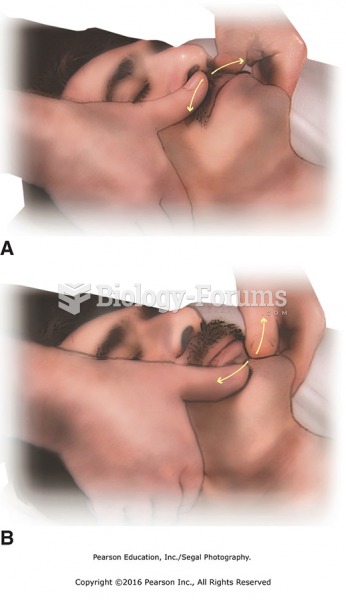|
|
|
In most cases, kidneys can recover from almost complete loss of function, such as in acute kidney (renal) failure.
During the twentieth century, a variant of the metric system was used in Russia and France in which the base unit of mass was the tonne. Instead of kilograms, this system used millitonnes (mt).
Eat fiber! A diet high in fiber can help lower cholesterol levels by as much as 10%.
Pubic lice (crabs) are usually spread through sexual contact. You cannot catch them by using a public toilet.
If you use artificial sweeteners, such as cyclamates, your eyes may be more sensitive to light. Other factors that will make your eyes more sensitive to light include use of antibiotics, oral contraceptives, hypertension medications, diuretics, and antidiabetic medications.
 The recent mass upheavals in Tunisia, Egypt, Libya, Yemen, and Syria gave political scientists a cha
The recent mass upheavals in Tunisia, Egypt, Libya, Yemen, and Syria gave political scientists a cha
 J. P. Morgan, the financial genius, staved off ruinous competition among steel firms by combining mo
J. P. Morgan, the financial genius, staved off ruinous competition among steel firms by combining mo





